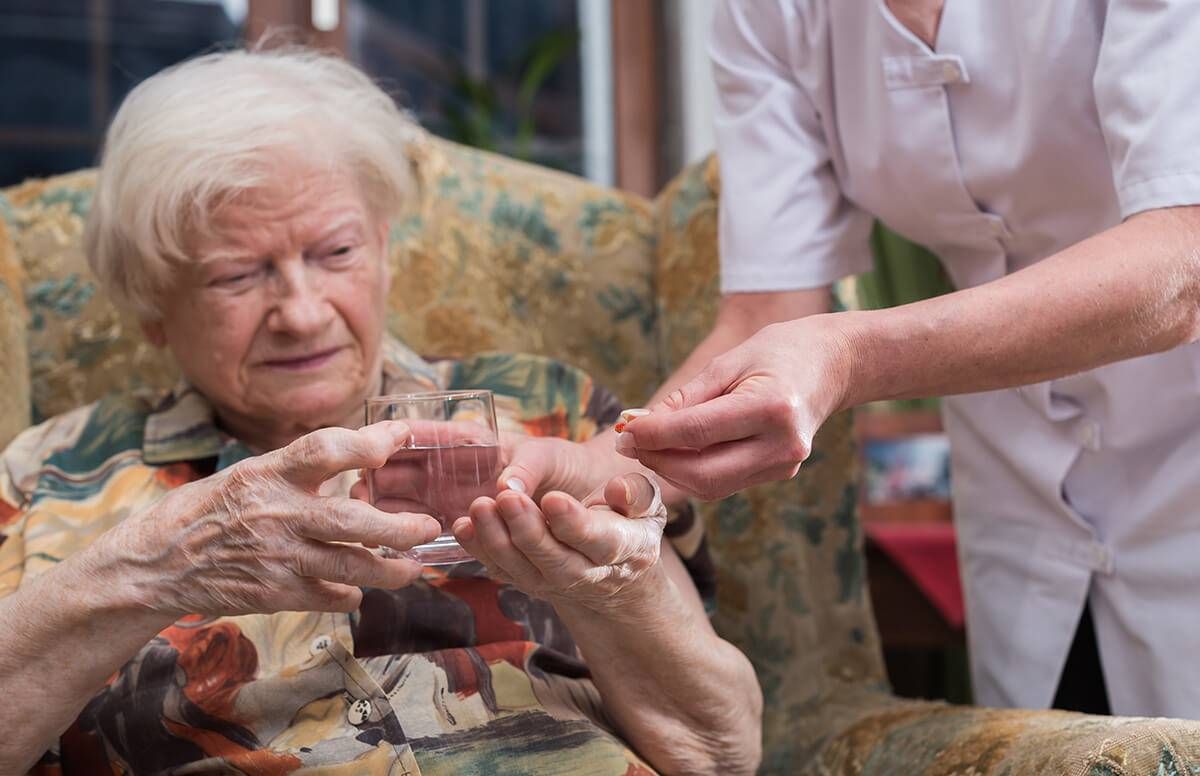The Drug Being Pushed on Nursing Home Residents
The use of Nuedexta in people with dementia is 'inappropriate,' CNN report says
In a startling investigation, CNN has learned that the maker of a drug designed to treat an uncommon condition is increasingly pushing it on nursing home residents with dementia and Alzheimer’s — with sometimes dire consequences.

The U.S. Food and Drug Administration (FDA) approved Avanir Pharmaceuticals’ drug Nuedexta in 2010 for pseudobulbar affect, or PBA, a condition marked by bouts of uncontrollable crying or laughing.
PBA is most often associated with multiple sclerosis (MS) or amyotrophic lateral sclerosis (ALS), commonly known as Lou Gehrig's disease. But it can occur with other neurological conditions, like stroke, Alzheimer’s disease or other dementia. It affects less than 1 percent of the population, the CNN report says. The laughing or crying symptoms do not mirror the emotional state of the person experiencing them and can cause embarrassment, anxiety and social isolation, according to the Mayo Clinic.
The Wrong Patients?
The clinical trials conducted for FDA approval included only people with MS or ALS. The FDA did approve Nuedexta for use with individuals with other disorders, like dementia, as long as they also have PBA.
“But geriatric physicians, dementia researchers and other medical experts told CNN that PBA is extremely rare in dementia patients; several said it affects 5 percent or less. And state regulators have found doctors inappropriately diagnosing nursing home residents with PBA to justify using Nuedexta to treat patients whose confusion, agitation and unruly behavior make them difficult to manage,” the CNN story says.
CNN said Avanir declined requests for an interview.
[Editor's note: On Oct. 19, CNN reported in a follow-up story that Los Angeles City Attorney Mike Feuer has launched an investigation into Avanir, prompted by CNN's findings. He said the city would seek information from the public to help determine if the company had violated any laws.]
Following the Money
The CNN investigation found that Avanir’s sales force was aggressively targeting nursing home residents and raking in “hundreds of millions of dollars a year.”
The drug company also recruited doctors to prescribe and advocate for the drug. One California psychiatrist, Romeo Isidro, became a speaker for Avanir and was one of the physicians paid the most by the company, CNN says. Between 2013 and 2016, he received more than a half million dollars in payments, travel and meals. As early as 2012, he had more than 100 patients in 11 facilities on the drug, CNN reports.
Much of the money Avanir made came from the federal government in the form of payments under Medicare Part D drug coverage.
Reports of Nuedexta Problems
A 2015 study by Avanir tested the use of Nuedexta in a study of 194 Alzheimer’s patients exhibiting agitation; 152 of them received the drug. While the investigators wrote that the agitation of those receiving the drug “significantly improved” compared to those taking a placebo, the CNN report points out that more than twice as many patients (8.6 percent) on Nuedexta experienced falls compared with the placebo group (3.9 percent).
According to the drug’s website, dizziness and weakness are among its most common side effects.
Some patients experienced more serious effects: CNN says it wasn’t long after Nuedexta was approved in 2011 that health providers and family members “began filing reports of potential harm.” Some included coma and death. Nuedexta was listed as a "suspect" medication in nearly 1,000 adverse drug event reports to the FDA, CNN reports. (Those don’t necessarily mean that Nuedexta was ruled the cause of the reported problem.)
A company statement says, in part: “Avanir spent more than 10 years and hundreds of millions of dollars to conduct extensive clinical studies and bring Nuedexta to market. Nuedexta has a well-characterized safety profile in patient populations with neurological disease or injury.”
You can find the full CNN story here.


